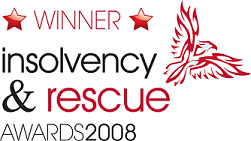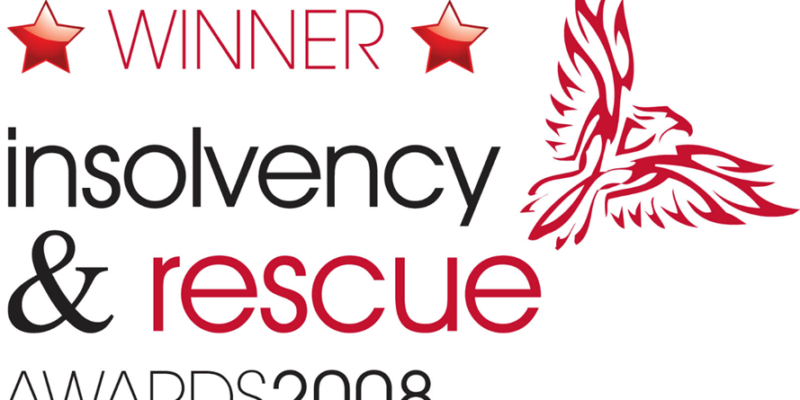- RT @ramseyshow: RT @E_C_S_T_E_R_I_: "Stupid has a gravitational pull." -D Ramsey as heard n NPR. I know many who have not escaped its orbit. #
- @BudgetsAreSexy KISS is playing the MINUTE state fair in August. in reply to BudgetsAreSexy #
- 3 year old is "reading" to her sister: Goldilocks, complete with the voices I use. #
- RT @marcandangel: 40 Useful Sites To Learn New Skills http://bit.ly/b1tseW #
- Babies bounce! https://liverealnow.net/hKmc #
- While trying to pay for dinner recently, I was asked if other businesses accepted my $2 bills. #
- Lol RT @zappos: Art. on front page of USA Today is titled "Twitter Power". I diligently read the first 140 characters. http://bit.ly/9csCIG #
- Sweet! I am the number 1 hit on Ask.com for "I hate birthday parties" #
- RT @FinEngr: Money Hackers Carnival #117 Wedding & Marriage Edition http://bit.ly/cTO4FU #
- Nobody, but nobody walks sexy wearing flipflops. #
- @MonroeOnABudget Sandals are ok. Flipflops ruin a good sway. 🙂 in reply to MonroeOnABudget #
- RT @untemplater: RT @zappos: "Do one thing every day that scares you." -Eleanor Roosevelt #
The Magic Toilet

- Image by tokyofortwo via Flickr
My toilet is saving me $1200.
For a long time, my toilet ran. It was a nearly steady stream of money slipping down the drain. I knew that replacing the flapper was a quick job, but it was easy to ignore. If I wasn’t in the bathroom, I couldn’t hear it. If I was in the bathroom, I was otherwise occupied.
When I finally got sick of it, I started researching how to fix a running toilet because I had never done it before. I found the HydroRight Dual-Flush Converter. It’s the magical push-button, two-stage flusher. Yes, science fiction has taken over my bathroom. Or at least my toilet.
I bought the dual-flush converter, which replaces the flusher and the flapper. It has two buttons, which each use different amounts of water, depending on what you need it to do. I’m sure there’s a poop joke in there somewhere, but I’m pretending to have too much class to make it.
I also bought the matching fill valve. This lets you set how much water is allowed into the tank much better than just putting a brick in the tank. It’s a much faster fill and has a pressure nozzle that lies on the bottom of the tank. Every time you flush, it cleans the inside of the tank. Before I put it in, it had been at least 5 years since I had opened the tank. It was black. Two weeks later, it was white again. I wouldn’t want to eat off of it, or drink the water, but it was a definite improvement.
Installation would have been easier if the calcium buildup hadn’t welded the flush handle to the tank. That’s what reciprocating saws are for, though. That, and scaring my wife with the idea of replacing the toilet. Once the handle was off, it took 15 minutes to install.
“Wow”, you say? “Where’s the $1200”, you say? We’ve had this setup, which cost $35.42, since June 8th, 2010. It’s now September. That’s summer. We’ve watered both the lawn and the garden and our quarterly water bill has gone down $30, almost paying for the poo-gadget already. $30 X 4 = $120 per year, or $1200 over 10 years.
Yes, it will take a decade, but my toilet is saving me $1200.
You’re not alone: Help with Bankruptcy & Debt
 Frequently regarded as an indication of personal failure, bankruptcy is still today widely considered a highly sensitive topic. Many will even feel uneasy speaking about their debt problems with close relatives and friends. If you, too, are facing serious debt issues and are in need of help, rest assured you are not the only one afraid of sliding into bankruptcy. In fact, thousands of households in the UK are threateningly close to insolvency and most are experiencing the exact same feelings of shame and despair. This perfectly understandable reaction has, meanwhile, unfortunately overshadowed the fact that there are hands-on practical steps especially designed to help you resolve your debt situation.
Frequently regarded as an indication of personal failure, bankruptcy is still today widely considered a highly sensitive topic. Many will even feel uneasy speaking about their debt problems with close relatives and friends. If you, too, are facing serious debt issues and are in need of help, rest assured you are not the only one afraid of sliding into bankruptcy. In fact, thousands of households in the UK are threateningly close to insolvency and most are experiencing the exact same feelings of shame and despair. This perfectly understandable reaction has, meanwhile, unfortunately overshadowed the fact that there are hands-on practical steps especially designed to help you resolve your debt situation.
There is a good reason why addressing the issue of bankruptcy has an urgent ring to it. Recent statistics indicate a steady rise of individual company insolvencies in the UK, particularly since the 1990s. According to the British Insolvency Service, the rate of bankruptcy on an individual level has risen from a total of 24,441 in 1997 to staggering 106,645 in 2007 in England and Wales. Alarmingly, the peak doesn’t seem to have been reached yet. As respected online-service ‘This is Money’ reports, ‘record numbers of people were declared insolvent in England and Wales’ in 2010, further noting that ‘an all-time high of 135,089 people were declared insolvent in 2010—0.7% up on the total for 2009.’ As you can gather from these numbers, you are certainly not alone with your debt problems: Around 140,000 adults are facing bankruptcy as a direct consequence of mishandling their debt issues, which translates to 385 new cases per day. It has already been pointed out that ‘the number of victims will be enough to fill both the London 2012 Olympic stadium and the Emirates Stadium.’
So, if you’re facing bankruptcy, there’s no need to feel ashamed. By taking an active stance and addressing your debt issues, you may even be able to avert insolvency altogether. With years of experience and several distinctions to our credit, the Debt Advisory Line have established themselves as leading experts in the field of debt management. We’ve already helped thousands of individuals and households who thought bankruptcy was their only option. Settling debt issues is our forte – and you shouldn’t settle with anything less.
This post brought to you by Debt Advisory Line.
How to Prioritize Your Spending
Don’t buy that.
At least take a few moments to decide if it’s really worth buying.
Too often, people go on auto-pilot and buy whatever catches their attention for a few moments. The end-caps at the store? Oh, boy, that’s impossible to resist. Everybody needs a 1000 pack of ShamWow’s, right? Who could live without a extra pair of kevlar boxer shorts?
Before you put the new tchotke in your cart, ask yourself some questions to see if it’s worth getting.
1. Is it a need or a want? Is this something you could live without? Some things are necessary. Soap, shampoo, and food are essentials. You have to buy those. Other things, like movies, most of the clothes people buy, or electronic gadgets are almost always optional. If you don’t need it, it may be a good idea to leave it in the store.
2. Does it serve a purpose? I bought a vase once that I thought was pretty and could hold candy or something, but it’s done nothing but collect dust in the meantime. It’s purpose is nothing more than hiding part of a flat surface. Useless.
3. Will you actually use it? A few years ago, my wife an cleaned out her mother’s house. She’s a hoarder. We found at least 50 shopping bags full of clothes with the tags still attached. I know, you’re thinking that you’d never do that, because you’re not a hoarder, but people do it all the time. Have you ever bought a book that you haven’t gotten around to reading, or a movie that went on the shelf, still wrapped in plastic? Do you own a treadmill that’s only being used to hang clothes, or a home liposuction machine that is not being used to make soap?
3. Is it a fad? Beanie babies, iPads, BetaMax, and bike helmets. All garbage that takes the world by storm for a few years then fades, leaving the distributors rich and the customers embarrassed.
4. Is it something you’re considering just to keep up with the Joneses? If you’re only buying it to compete with your neighbors, don’t buy it. You don’t need a Lexus, a Rolex, or that replacement kidney. Just put it back on the shelf and go home with your money. Chances are, your neighbors are only buying stuff so they can compete with you. It’s a vicious cycle. Break it.
5. Do you really, really want it? Sometimes, no matter how worthless something might be, whether it’s a fad, or a dust-collecting knick-knack, or an outfit you’ll never wear, you just want it more than you want your next breath of air. That’s ok. A bit disturbing, but ok. If you are meeting all of your other needs, it’s fine to indulge yourself on occasion.
How do you prioritize spending if you’re thinking about buying something questionable?
Vacation, Shmaycation, Staycation?
Last week was our family vacation. This year, we decided to keep it cheap, since we raided our savings a few months ago to cover my son’s vision therapy.
Here’s what we did:
Friday (Yes, I started vacation on a Friday): My wife worked a half day, then we drove to visit my parents, roughly 120 miles north of our house. $110 for gas, round-trip, and $10 for drive-through lunch. $120 total.
Saturday: We went to the county fair and Dairy Queen. $18 for admission. $30 for ride tickets. $35 for food and ice cream. The ride tickets were totally worth it. My son and I discovered that he can handle the fun rides, which thrills me. $83 total.
Sunday: We had a picnic at the bottom of Inspiration Peak, the third highest point in Minnesota, followed by a hike to the top. That evening, my brother, his wife, my wife, and I tricked my parents into babysitting and escaped for several hours of adult time. After a couple of overpriced drinks at a crap restaurant, we went somewhere nicer and cheaper. A nice dinner, a few drinks, and a round of drunken go-karts later, we spent $90 for the evening.
Monday: Back to the go-kart park for the afternoon, and the return drive home in the evening. The go-kart park included 3 rounds of go-karts, mini-golf, and a round of bumper boats. $40.
Tuesday: A hands-on kids museum, a natural history museum that was hosting a portable planetarium, and a teppenyaki restaurant. We used museum passes for the museums, so this cost a total of $160. By far, the most expensive part was the restaurant. The museums cost a combined $30.
Wednesday: We spent the day at the Monster Mall’s indoor theme park, Nickelodean Universe, where we tested my son’s ability to handle the fun rides for $70. Then we ate at the Rainforest Cafe for $116, and we got my wife’s anniversary present, a family portrait at an “old time” photo studio. We chose a 1920s theme. I must say, I look dashing in a zoot suit. $260 total.
Thursday: My wife had to work on Thursday because she was short of vacation time, so I had the brats to myself. We went to a pick-your-own apple orchard where we picked a large bag of apples, a bottle of real, locally-made maple syrup and 3 cookies-on-a-stick. Afterwards, Brat #1 and I went to a Chinese buffet and the comic book store while the women-folk went to a saddle-club meeting. $60 total.
Friday: We had a fried chicken picnic at the largest playground in the area, and otherwise took it easy. $12.
Saturday: On Saturday, my girls rode in a horse show for the saddle club while my wife put in her volunteer work hours. Registration and the food for the potluck ran $40.
Sunday: I had to teach a gun class, so I made money, instead of spending it. My wife and kids played around the house.
Total, our vacation cost us $865, for 10 days of memories. If we would have skipped the restaurants, it would have cost $465, but we wanted those experiences, too. Our vacation fund has $906 in it, so we did all right.
Can Bad Credit Cost You Your Job?
Did you know that having a bad credit history could cost you your job? An increasing number of American employers have turned to running credit checks to screen job

applicants. Some companies even evaluate existing employees on a regular basis by checking their credit reports. If you have outstanding debts, you might consider getting one of those credit cards for bad credit to clean up your report before you apply for your dream job.
Not all companies run your credit history when you apply for a position. However, if you’re applying for a job that entails working with money or valuables, it’s a safe bet that they’ll be checking your credit history. Financial institutions, brokerage companies and jewelry manufacturers all run credit checks, as do hotels, accounting firms, human resource departments and government agencies.
Companies run credit checks because they want to hire employees who won’t be tempted to embezzle company funds to pay off large debts. Some companies fear that employees who carry large debt loads are susceptible to blackmail or bribery. The federal government carries this concern even further, indicating that citizens who owe large debts are considered national security risks.
Many companies feel that your credit report gives them a sneak peak at your true character. Having a good credit history indicates that you are a responsible person with excellent character. Having a bad credit history means that you are an unreliable person of poor character. True or not and fairly or not, this is the current belief running throughout company hiring departments.
Unfortunately, you can’t relax about your credit report even after you’ve been hired for a position. Once you’ve given a company written permission to check your credit report, they can recheck it at a later date. Government and financial organizations often run periodic credit checks on all of their employees. Some companies only recheck your credit history if you are up for a promotion. It’s a good idea, therefore, to keep your credit history squeaky clean.
Keep in mind that having a couple of late payments probably won’t kill your chances of employment or promotion. Most employers look for the really big issues, such as high credit card balances, defaulted student loans, repossessions and foreclosures. Some companies also look for charge-offs and consistent late payments as well.
Steps You Can Take
Financial experts suggest checking your credit report before you start your job search. Read your credit report carefully and make sure that all of the information is accurate. If your report contains incorrect details or any unauthorized charges, dispute these errors immediately and have them corrected to raise your credit score.
If you have a host of unpaid bills, find a way to settle those debts to improve your credit history before applying for jobs. Many people turn to credit cards for bad credit consumers. These cards allow you to consolidate all of your debts into a single debt. Just don’t forget to make the payments on this card.
Be upfront with potential employers about any negative marks on your credit history. Just tell them that you have had past issues with your credit and are now working to clear up all of your debt. There’s no need to go into explicit detail.
Once you have a job, be sure that you check your credit report at least every six months to ensure it contains only correct information. Pay all of your creditors on time. Never take out any new lines of credit unless you are absolutely positive that you can pay it back in a timely manner.
Post by Moneysupermarket






